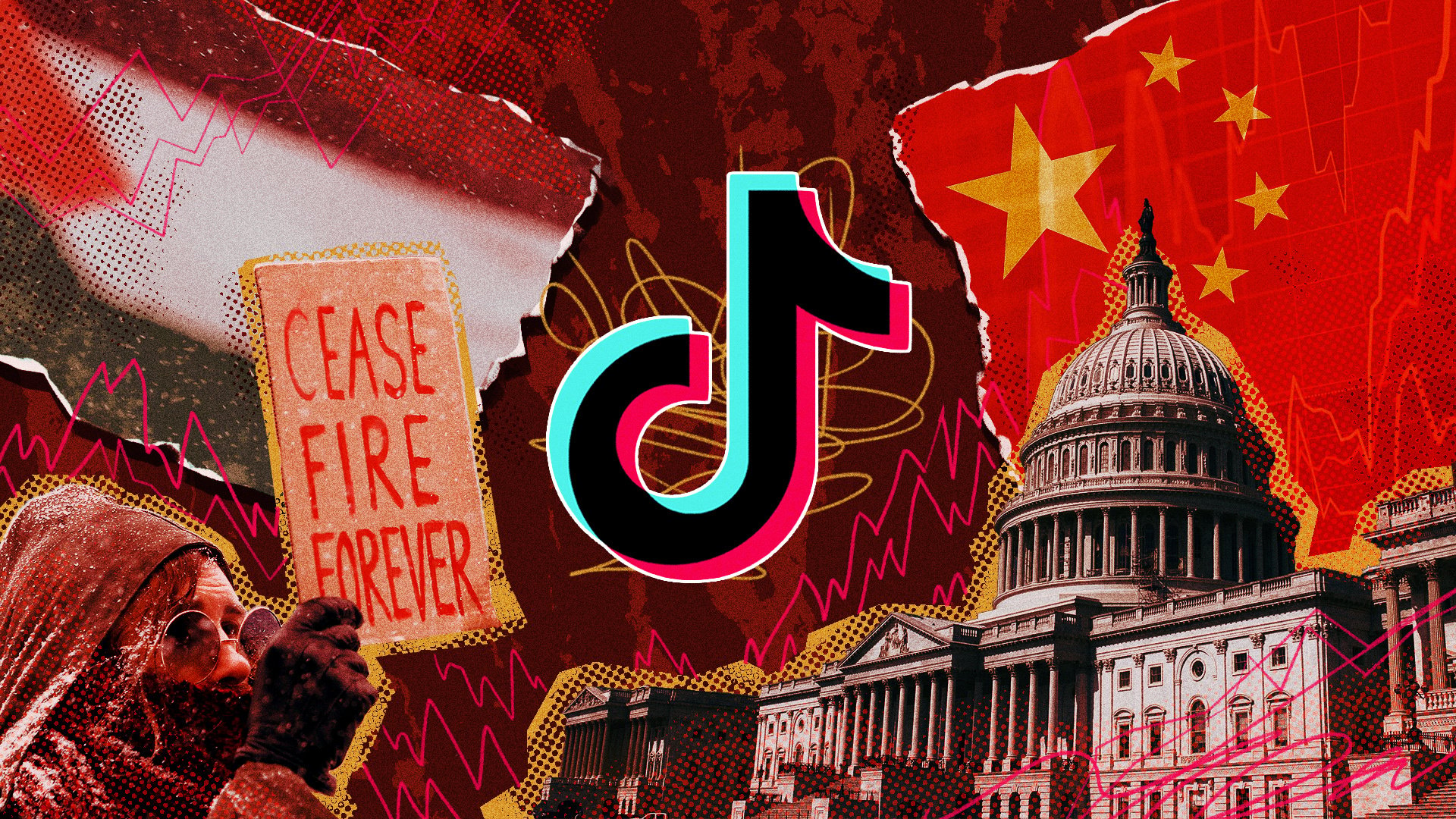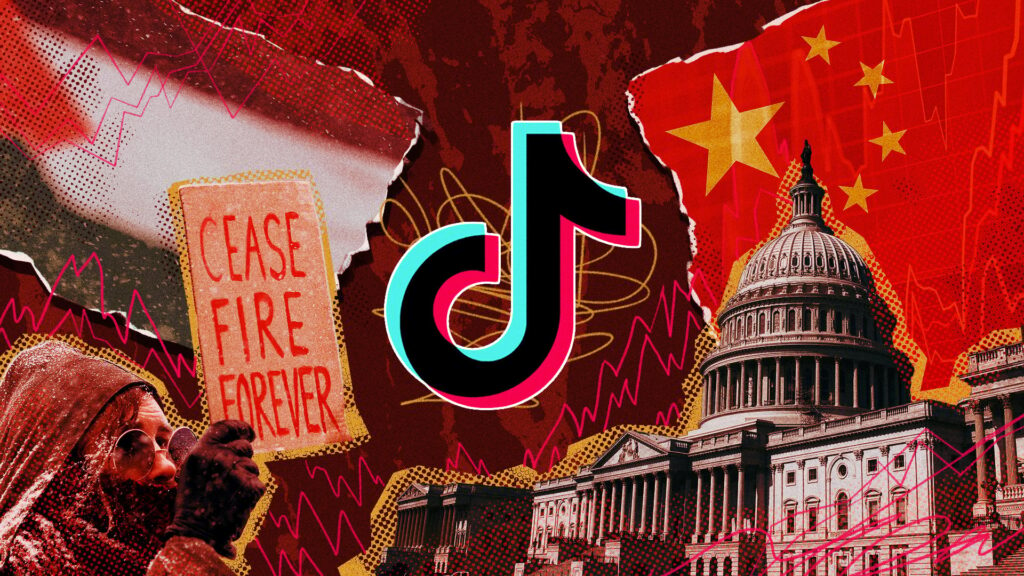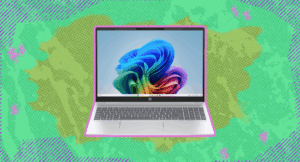
The debate over banning TikTok has grown increasingly complex. While politicians have voiced concerns about national security risks posed by the app’s Chinese ownership, activists suggest a deeper agenda may be aimed at curbing pro-Palestinian content on the platform.
What does the TikTok ban have to do with Palestine?
The push to ban TikTok started in 2019 with a barrage of bills attempting to limit TikTok’s reach. Politicians argue that under Chinese law, TikTok’s parent company, ByteDance, could be forced to share user data with the Chinese government, posing a hypothetical security risk to U.S. interests.
However, legislators haven’t kept their comments to China alone. Some have also raised concerns about the spread of pro-Palestinian views on TikTok. This challenges the First Amendment, with activists arguing that Americans should be free to consume information, even if it includes propaganda. The Supreme Court upheld this viewpoint in the 1965 case Lamont v. Postmaster General, which affirmed that Americans have the right to receive information and then decide for themselves what to believe, even if it comes from abroad. This hasn’t stopped legislators from arguing that an app that spreads this kind of content should be banned.
At the Munich Security Conference in February 2025, former U.S. congressman Mike Gallagher, who introduced a TikTok ban bill in 2023, claimed the issue gained traction after the Oct. 7 attack by Hamas on Israel. “People started to see a bunch of antisemitic content on the platform, and our bill had legs again,” Gallagher said, implying that the content in response to the attack was a driving factor behind renewed efforts to ban the app.
And this isn’t something the lawmakers have been hiding.
“There have been multiple different instances where high-ranking U.S. officials or former-U.S. officials, like former-Governor Mitt Romney, made very explicit comments saying that the TikTok problem is closely related to the Palestine problem,” Eric Sype, a national organizer for 7amleh, or the Arab Center for the Advancement of Social Media, told Mashable.
Romney connected the TikTok ban to pro-Palestinian content in May 2024, saying: “Some wonder why there was such overwhelming support for us to shut down potentially TikTok or other entities of that nature. If you look at the postings on TikTok and the number of mentions of Palestinians, relative to other social media sites — it’s overwhelmingly so among TikTok broadcasts.”
And Romney isn’t alone in linking the TikTok ban to pro-Palestinian content.
Rep. Mike Lawler, who co-sponsored the TikTok ban legislation, said on a call with university trustees in May 2024 that lawmakers included the TikTok ban in the foreign supplemental aid package “because you’re seeing how these kids are being manipulated by certain groups or entities or countries to foment hate on their behalf and really create a hostile environment here in the U.S.”
As the Intercept reported, Gallagher also argued in an op-ed in the Free Press that the Chinese Communist Party, pro-Palestinian content, and the TikTok ban are inherently interconnected. “How did we reach a point where a majority of young Americans hold such a morally bankrupt view of the world? Where many young Americans were rooting for terrorists who had kidnapped American citizens — and against a key American ally? Where were they getting the raw news to inform this upside-down worldview? The short answer is, increasingly, via social media and predominantly TikTok,” he wrote.
Senator Josh Hawley took this a step further in October 2023, calling TikTok a “Chinese spy engine and purveyor of virulent antisemitic lies.”
Lawmakers might not have come to this conclusion themselves, either. Ken Klippenstein, an independent journalist, obtained a memo from the State Department for its Near East Affairs diplomats that details how Israel’s deputy director general for public diplomacy at the foreign ministry, Emmanuel Nahshon, blamed TikTok’s algorithm for fostering pro-Palestinian views among U.S. youth. Nahshon said young people were more likely to support Palestine because “the Tik-Tok algorithm favours pro-Palestinian content.”
It’s a stretch to claim that TikTok is inherently pro-Palestinian. According to a report from The Washington Post, TikTok doesn’t have significantly more pro-Palestinian content than other social media platforms, like those owned by Meta. However, TikTok is a platform used predominantly by young people, and young people tend to have more pro-Palestinian sentiment than older generations.
This demographic dynamic, combined with the spread of pro-Palestinian content on the platform, has raised alarms among U.S. lawmakers. Their growing frustration with the spread of views they oppose is likely a key factor behind the call for tighter regulation of TikTok.
As Sype from 7amleh told Mashable, “It’s quite clearly showing that the original stated rationale for trying to ban it was really fairly disingenuous.”
Do legislators’ motivations matter when it comes to the TikTok ban?
In short: probably not. Regardless of legislators’ motivations, the app will likely be banned or sold, driven by the Supreme Court’s decision to uphold the TikTok ban.
Under the First Amendment, the government can’t simply ban speech it doesn’t like unless it meets an extremely high constitutional standard. In this case, the government couldn’t meet that standard. Instead, the Supreme Court focused on data protection concerns.
“The Supreme Court upheld the ban not because it found it constitutional to discriminate against TikTok on the basis of TikTok’s viewpoint or the viewpoints of anybody using TikTok’s services. Instead, the Supreme Court said, we don’t have to think about any of that because there is a content-neutral justification for this law, and it is protecting American’s data from access by the Chinese government,” Kate Ruane, the director of the Center for Democracy and Technology’s Free Expression Project, told Mashable.
Ruane suggested that the argument about slowing the spread of pro-Palestinian sentiment would likely not have impacted the Court’s decision.
“The fact that we’re now [discussing] some other viewpoint that Congress was set on restricting or preventing, I don’t think that would’ve mattered for the case because the Supreme Court just kind of ignored the viewpoint-based justifications for enacting the ban,” Ruane said.
That said, the record is clear: Many legislators were motivated to ban TikTok due to concerns about the content it hosts — particularly pro-Palestinian views and Chinese propaganda.
What happens next with the TikTok ban?
Right now, we’re in a bit of a holding pattern. The app is back on app stores, the date the ban goes into effect has been extended thanks to President Donald Trump’s administration, and plenty of individuals and organizations are making their bids to buy it, including the notoriously anti-Palestine tech company Oracle.
There are rumors that Trump might extend the ban deadline even further — multi-billion dollar deals tend to take time. But as of this writing, TikTok either needs to divest or it will be banned again on April 5, when Trump’s 75-day extension ends.







